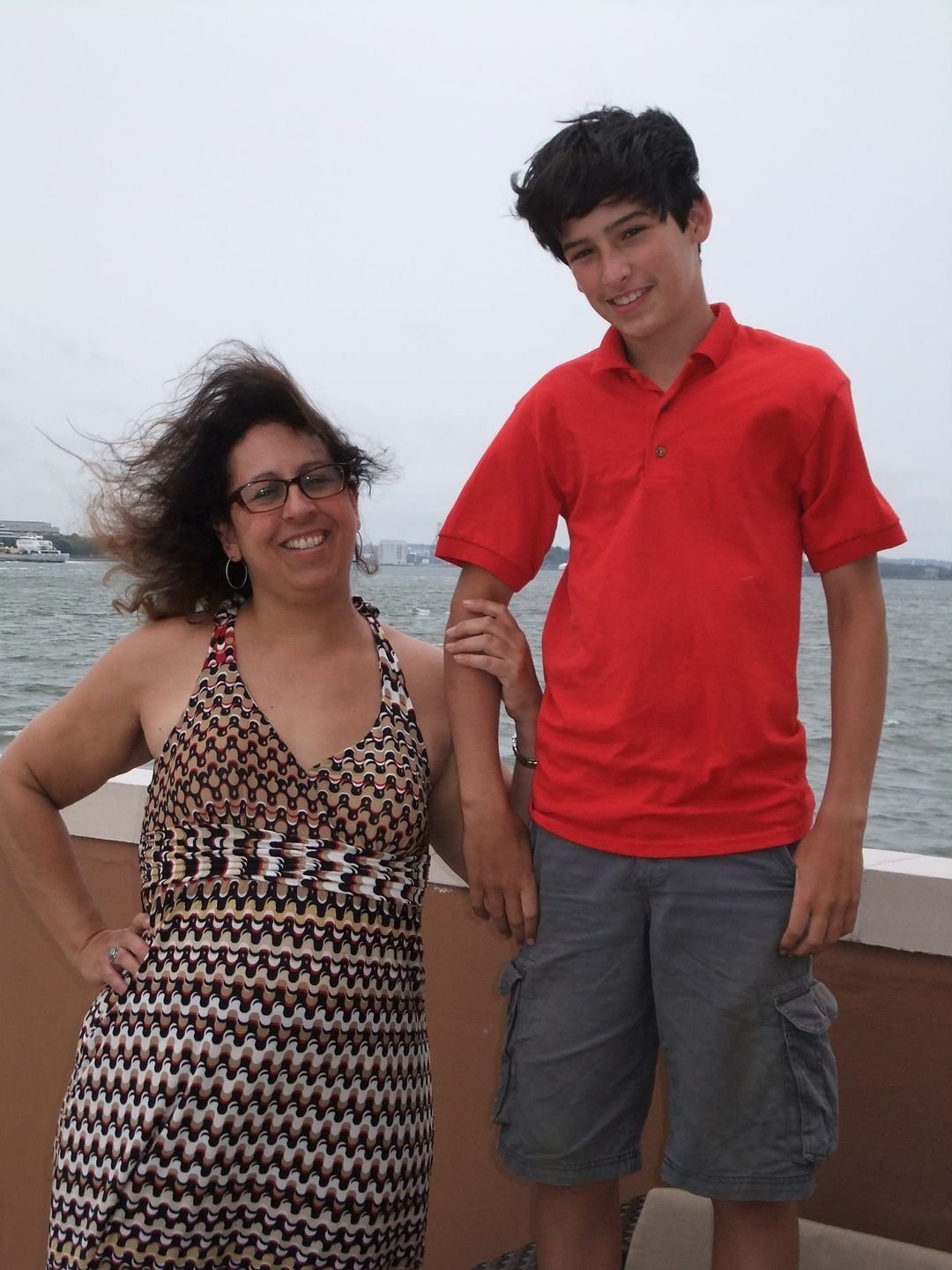Personal Essays
Looking For the Mitzvah in Bar Mitzvah: A Jewish Mother Thinks About the Value of Religious Education
in Busted Halo, September 25, 2008
by Dr. Cheryl J. Fish
My nine-year-old son, Josh, is not interested in learning Hebrew or in having a bar mitzvah. The bar mitzvah, a Jewish ritual when a boy turns 13, is the transition from childhood to “manhood” that involves reading from the Torah in Hebrew before the entire congregation.
“You didn’t have one, Mom,” he emphasizes. I explain that in the 1970s girls often didn’t have a bat mitzvah, the female version, especially if they were cultural, secular Jews who didn’t belong to any temple. Ironically, it is my parents, his grandparents, who are adamantly attached to the idea of a bar mitzvah for my boy.
“I hope I live to see Josh read from the Torah,” says my 85-year-old dad, repeating his litany. These are people who didn’t bring me up to be religious, people who always seemed to believe more in the Democratic Party than in scripture. It’s a little confusing to me, but I can’t help but be moved by their desire to see Josh enter adulthood in the Jewish community.
Everyone tells me Josh is not supposed to like going to Hebrew school. Similar to spinach and cod-liver oil, it’s just “good for him.” But is this the association I want him to have with his heritage? With faith? It would help if his friends were into it, but most of them are not Jewish or only marginally so.
For me, the idea of Hebrew school is less foreign. One of my oldest friends married a guy who was raised orthodox. Their kids spend weekends in Hebrew school instead of playing sports. Josh sees this as completely alien. I don’t like taking it to either extreme—too much or too little—but where is the middle ground? Is there one?
Josh wants to stay involved in sports and computers and other after-school programs, not spend hours each week learning Hebrew. Where we live in Manhattan, there are a variety of non-traditional approaches to Jewish education, but many are expensive. One of them requires twice-a-week-meetings after school for three hours at a time.
While I wonder if this is a bit much, another option allows him to wait until he’s on the verge of 12 and then take a crash course with tutors. This doesn’t appeal to me at all—it seems like cheating. It seems I am up against his will and my own ambivalence.
I am sure I would feel stronger if I had had a meaningful Jewish education, but I didn’t. I am one who has explored the smorgasbord of spirituality as an adult, ranging from Buddhism to yoga to interfaith to the Jewish “renewal” movement. When I attend a service in Hebrew, I am lost and kind of ashamed. It would be great to know how to read and understand this ancient language, and yet…
I guess part of my problem is figuring out what I want from organized Judaism. As an academic teaching literature, I draw on the powerful origin stories that come up as we study history, religions, environments, and cultures. My stance is intellectual and therefore somewhat distanced: I see these stories as stories, not eternal truths. I see as much harm in them as good.
I know there are some wonderful synagogues and other religious institutions involved in social action. I have to ask myself, why am I still unresolved?
At the same time, in a meaningful Jewish service, whether at a synagogue or in a chavurah (a group of people gathered to pray and/or study Torah without a rabbi), I can feel an oceanic connection to a higher power and to those around me. In the words and struggles of the biblical ancestors, the silences, music, and movements I can feel humbled. There are moments where it’s clear the ego needs to let go. It’s often hard to know how to reconcile these two types of experience.
Maybe that’s why I am hoping Hebrew school will provide Josh with something that the modern world is lacking. Children today are steeped in consumerism and a sense of entitlement. They grow up without a real feeling of community. Religion can be a source of strength if it’s not self-serving and arrogant.
I want my son to know the ethical and social-justice aspects of our faith. Together we have read about the Holocaust and socialism in our family’s heritage—both aspects are worth learning about. How do privileged American communities pass on the issue of social justice to their children?
In These are the Words: A Vocabulary of Jewish Spiritual Life, author Arthur Green writes:
“Spreading our basic moral message—that every person is the divine image…requires that Jews be concerned with the welfare, including feeding, housing, and health, of all. The Torah’s call that we ‘pursue justice, only justice,’ (Deuteronomy 16:20) demands that we work towards closing the terrible gaps, especially in education and opportunity that exist within our society…”
It is important to remember that the Hebrew word mitzvah, the second half of the term bar mitzvah, means “good deed.” I know there are some wonderful synagogues and other religious institutions involved in social action, such as feeding the homeless and trying to raise awareness of genocide in Darfur. I have to ask myself, why am I still unresolved?
As the summer meanders along, Josh is away at camp and I am working on my academic research and writing. My decision on religion sits there among many others. I am still unclear. I want my son to learn Hebrew and study his religion’s heritage. I want him to have a bar mitzvah and become a part of a meaningful community. Still, I don’t know if I want it badly enough. For now, I am seeking guidance to find an answer for us.
